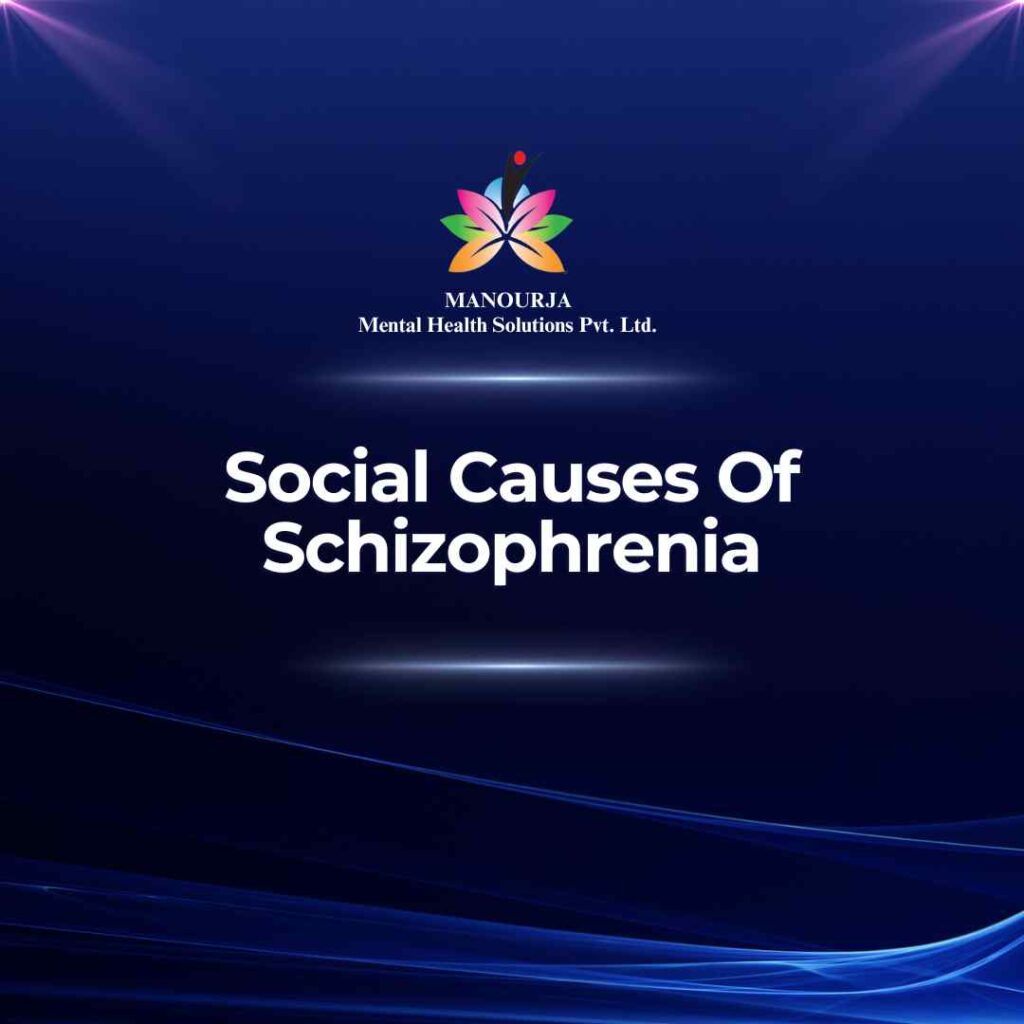Social Causes of Schizophrenia

Schizophrenia, while primarily influenced by genetic and biological factors, can also be affected by a range of social factors. These social causes do not directly induce schizophrenia but can play a significant role in its onset, severity, and progression, particularly among individuals who are already genetically predisposed.
Here’s an overview of some key social factors that have been linked to the development and exacerbation of schizophrenia:
Urban Living
Research indicates that growing up or living in an urban environment is associated with a higher risk of developing schizophrenia. The reasons are thought to include increased stress from urban living conditions, higher levels of pollutants, greater exposure to viruses or toxins, and social isolation amidst dense populations.
Socioeconomic Status
Lower socioeconomic status is another risk factor. This may relate to higher levels of stress, poorer access to quality healthcare, increased exposure to toxins and infections, and other factors associated with living in lower socioeconomic conditions.
Migration and Social Adversity
Migrants and their children, particularly those from ethnic minority groups living in majority communities, show higher rates of schizophrenia. This could be due to the social adversity they face, including discrimination, social exclusion, and the stress of adapting to a new culture. These experiences can exacerbate feelings of isolation and alienation, contributing to the risk of developing schizophrenia.
Early Childhood Adversities
Experiences such as childhood trauma, parental loss, or separation can increase susceptibility to schizophrenia later in life. The stress and emotional turmoil triggered by these events can have long-lasting effects on brain development and psychological health.
Family Dynamics
Certain family dynamics, particularly those characterized by high levels of conflict, criticism, and communication deficits, can increase stress and may trigger schizophrenia in genetically predisposed individuals. The concept of “expressed emotion” in families, which includes critical, hostile, and emotionally over-involved attitudes, has been linked to higher relapse rates in schizophrenia.
Social Isolation
Chronic social isolation, whether voluntary or imposed, is a significant stress factor that can contribute to the onset and progression of schizophrenia. Isolation reduces opportunities for social interactions that could provide reality checks, help manage stress, and promote mental health.
Substance Abuse
While substance abuse is not a direct cause of schizophrenia, it can be a contributing factor in its development. Use of substances like cannabis, hallucinogens, or stimulants is particularly linked to an increased risk of psychosis among vulnerable individuals.
Life Stressors
Major life stressors such as the death of a loved one, unemployment, or severe relationship issues can act as triggers for the onset of schizophrenia symptoms, particularly in those who may already be vulnerable due to genetic or other predisposing factors.
While these social factors alone do not cause schizophrenia, they can significantly impact its development, course, and outcome, especially when combined with biological vulnerabilities. Addressing these social determinants is crucial in the treatment and management of schizophrenia, suggesting that interventions should not only focus on medical treatment but also consider social and environmental improvements to support individuals at risk or suffering from schizophrenia.
At MANOURJA, we believe in the transformative power of counseling. Our experienced therapists offer a safe and supportive space where you can explore your thoughts, emotions, and challenges. Through personalized counselling sessions, we’ll work together to develop coping strategies, build resilience, and achieve lasting positive change. Discover the path to a healthier, happier you with MANOURJA counselling services.
MANOURJA Rehabilitation Services
At MANOURJA, we’re dedicated to helping you in rebuild your life, after difficult times. Our rehabilitation services focus on understanding what you need to move forward, whether you’re recovering from addiction, trauma, or any psychological – social challenges. We create personalized plans, that are all about helping you, regain your strength and find hope again. With a caring team by your side, you’ll have the support to make real progress and take steps toward a brighter, healthier future.
